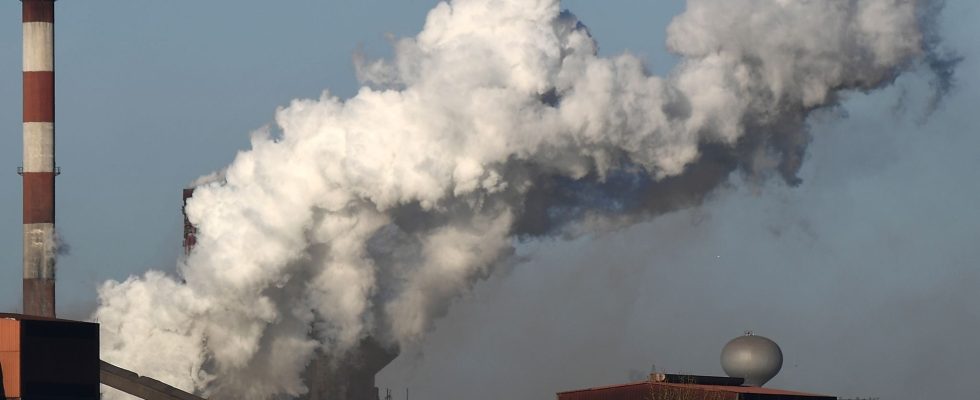Same family, different decor. A year after being welcomed by Emmanuel Macron in the hushed comfort of the Élysée, the leaders of the fifty most polluting sites in France stopped by the Salon des Mayors in Paris to perform Act II of the play devoted to decarbonization of industry. Objective: to ratify “ecological transition contracts” with the State, under the benevolent eye of Elisabeth Borne and three of her ministers, last-minute replacements for the president. In doing so, these sites are committed to reducing their greenhouse gas emissions by 45% by 2030, which represent almost two thirds of the CO2 emissions of French industry and 12% of those of the country.
The challenge is real. But the State is watching. To support the greening of the industry, the executive has secured an aid package of 5.6 billion euros. A year ago, Emmanuel Macron considered doubling the amount. A promise that he has yet to fulfill. At the risk of adding grist to the mill of those who criticize France’s lack of efforts, like the Climate Action Network. This federation of associations judges that “despite astronomical public investments, the reduction of CO2 emissions remains limited” in the industry… Especially since the contracts do not provide for sanctions in the event of non-compliance with commitments. Except for an elementary condition: no reduction, no subsidy.
As usual, the government favors “give and take” over the stick to push businesses to leave their comfort zone in order to meet the challenge of the century. Because if we rely on the study by La Fabrique de l’industrie and KPGM published this Thursday, November 23, industrial groups remain reluctant to adopt disruptive solutions to accelerate their greening. Reasons given? The cost of investments and the lack of maturity of technologies. Consequence: despite the emergency, the companies surveyed “still favor historic and fully controlled decarbonization levers, particularly linked to sobriety and energy efficiency”.
A useful commitment, but largely insufficient to double efforts to reduce greenhouse gas emissions, as provided for in the national low carbon strategy (SNBC). Especially since “the levers most frequently mentioned are not necessarily the most promising in terms of volume of abateable emissions: this is particularly the case with the lever for improving lighting and heating”, note the authors of the study. . And to recall that “the “real” decarbonization of companies, in the sense of the overall carbon footprint”, cannot be done without considering the entire value chain. Once again, although a certain number are embarking on the path to the circular economy – and a small handful are considering relocating activities! -, companies generally remain “unwilling to change their business model”. Of all the ruptures, this is the most radical that awaits them.
